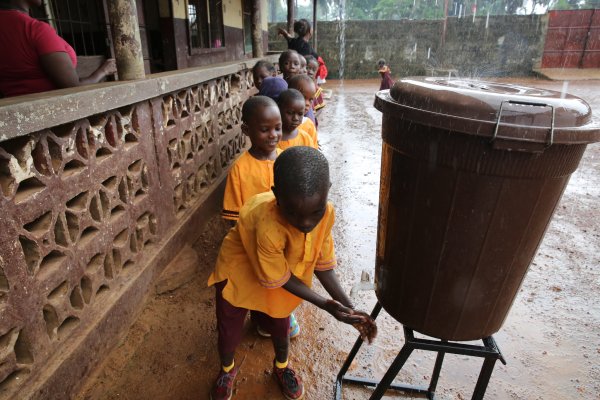Nutrient supplementation boosts effects of malaria chemoprevention in Burkina Faso
A collaborative study by researchers from the Institut de Recherche en Sciences de La Santé of Nanoro (IRRS-Nanoro) in Burkina Faso and IDDO/WWARN has found that giving young children vitamin and lipid supplements at the same time as seasonal malaria chemoprevention reduces the incidence of severe malaria by approx. 50%, compared to chemoprevention alone.

The randomised trial, carried out in association with the Burkina Faso Ministry of Health, also found that the combined vitamin A and lipid supplementation reduced illness (not just from malaria) by 24%.
Malaria is a life threatening illness, especially for children – 80% of the people who die from malaria are children under the age of five. To combat this, the WHO recommends a preventative dose of two antimalarials for children under age five who live in areas where there is high seasonal malaria transmission.
Burkina Faso implemented this regime nationally in 2019, with health workers going door to door and giving children this supplementation during the high malaria transmission period.
“But the full potential of this intervention may not have been achieved after ten years of implementation in Burkina Faso,” said study lead Dr Paul Sando, from the IRSS -Nanoro. “It is crucial to tailor the seasonal malaria chemoprevention programme to the local context.”
Accordingly, the programme has already been expanded to children older than five years in some areas, and health programmes in Burkina Faso and in Mali have tailored the number of cycles of the programme to the length of the transmission season.
But many of the children who receive the preventive antimalarials in Burkina Faso are also undernourished at the time when the treatment is given. The rainy season where malaria is most common is also when food shortages are most likely in the country, and deaths and illness due to malnutrition also peak during this season. Malnutrition can weaken the immune system and influence drug absorption.
The researchers here therefore decided to carry out a randomised trial intervention across 1059 children in a single rural district in Burkina Faso: some of the children received the standard malaria chemoprevention, while others also received a vitamin A supplement, a Vitamin A and Zinc supplement, or a Vitamin A supplement paired with a lipid-rich supplement used to treat acute malnutrition. The researchers tracked the children for a year after the intervention.
“We found that the lipid plus vitamin A supplementation had a big effect, with the children who were randomly assigned to receive this treatment having much lower levels of both uncomplicated and severe malaria,” said Dr Sondo. Rates of asymptomatic malaria infection were however not affected.
“This study is an example of how a collaborative approach, where work is led by researchers from the community who understand the local context and needs, can really help make a real difference to people’s lives and produce effective, low cost interventions” said IDDO Director Professor Philippe Guerin, who is a co-author on the study. “The existing door-to-door strategy for malaria chemoprevention in sub-saharan Africa is an excellent opportunity for nutritional supplementation, and these results demonstrate the feasibility of packaging these two interventions together to reduce the harm that malaria does across this region.”
Dr Paul Sondo said "The future work will be a large scale assessment of this combined strategy in other district of Burkina Faso as well as other Saharan countries with similar malarial and nutritional profile.”
Read the full paper at Malaria Journal.
